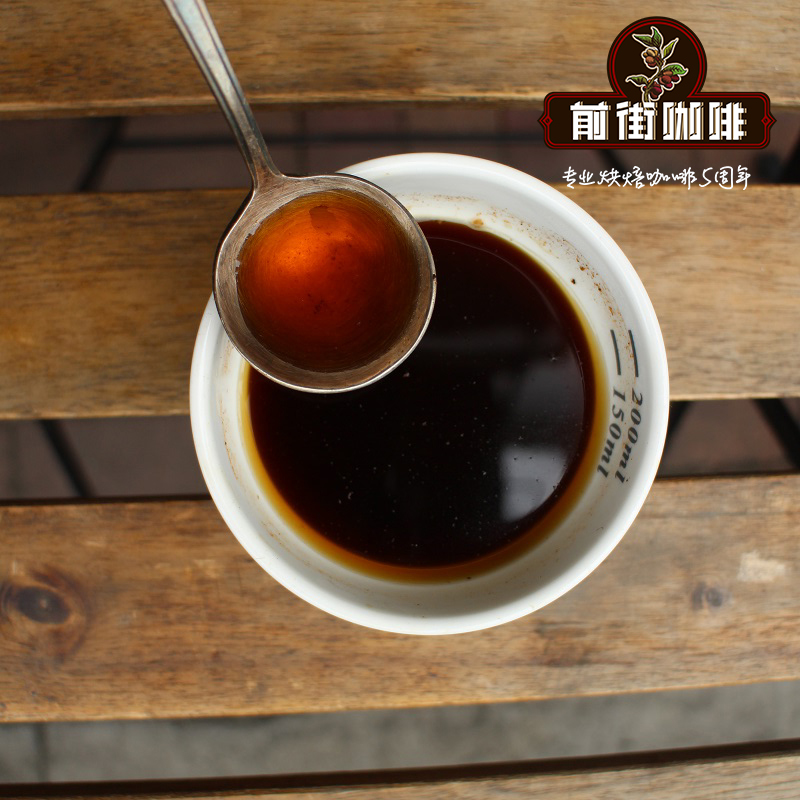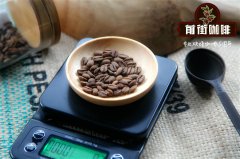Yemeni mocha mattari coffee bean taste how should yemeni mocha drink?

Professional coffee knowledge exchange more coffee bean information please follow the coffee workshop (Wechat official account cafe_style)
Yemen was the first country to use coffee as a cash crop. Legend has it that Muslim Sufi pilgrims were introduced from Ethiopia in the 6th century. The most correct spelling should be Al-Mahka, which is Arabic spelling, growing on steep terrain with little rainfall, poor land and insufficient sunshine. This unique and difficult condition for coffee growth has given birth to an irreplaceable Yemeni mocha. Wild Yemeni beans are mostly unmanaged, mature and dry after natural growth, farmers only do the work of picking up, the overall style [wild] or [natural] with earthy flavor is extremely complex, and for some people it is spicy, but you must try it sometime anyway. if you also fall in love with him deeply, it will be the beginning of a whole new coffee journey.
Yemen is located in Ethiopia, across the Red Sea from East Africa, and is the highest quality producer of natural suntan coffee. The coffee produced in Yemen is called mocha beans. In fact, Mocha is an export port of coffee. In the early days, sun beans including nearby East Africa were exported from the port of Mocha to all parts of the world, so the sun beans produced in Ethiopia, including Yemen and East Africa, are collectively referred to as moka beans.
The natural sun treatment in Yemen is to manually harvest fully mature coffee beans and directly place the newly harvested coffee beans in a special coffee drying yard or in their own compacted soil front yard to receive the sun. During the sun drying period with Taiwan, rice is usually turned over with a wooden rake to keep each bean evenly dried. After about 20 days of coffee drying, remove the outer pulp and peel from the coffee beans. Yemeni coffee has a rich, complex, mellow, strong fermentation flavor and low acidity, coupled with the uncertainty of Yemeni coffee (when it rains in the season). It is not too much to call it the most special coffee in the world.
Yemeni coffee grows in steep terrain with little rainfall, poor land and insufficient sunshine. Such unique and difficult conditions that are not conducive to coffee growth have given birth to the Yemeni mocha, which can not be replaced by the coffee world. The main producing area of Yemeni coffee is Sanani, Matari and Ismaili.
In the Mattari highlands of Yemen, coffee grows not far from farmers' backyards, most of the terrain is rugged and poor ridge volcanic rock, there is no data to verify the wild species, is the most common Yemeni mocha. We are looking forward to the complete suspension of Yamandou exports in 2012 because of the people's struggle for peace.
It is rare for a cup of coffee to have wild, game, wine, fig flavor, while at the same time contains mild, changeable, and strong chocolate flavor. The Yemeni mocha, once praised as an Arab wine, is a gift from Allah. Precisely because the original coffee trade was exported from the Yemeni port of Mocha, many people mistakenly think that Yemen is the birthplace of coffee. Up to now, some Europeans are still used to calling coffee mocha. Since the 17th century, coffee beans grown in dry Arabian soil and lack of moisture in the air have been particularly hard and small. Mocha production has been limited by local political upheaval and uneconomical planting. Among them, the Yemeni mocha is represented by Mattari, which has a sweet, smooth and unique flavor. The slightly sour and strong aftereffect can be said to be the most suitable coffee to drink after a meal, and it is also the best in mocha.
The [Yemeni mokamatari] of Qianjie Coffee may be due to the Yemeni way of growing and ancient sun treatment, which makes this bean taste a little early. Wild, full of wild and unruly, people are intoxicated by the rich chocolate flavor in the entrance, the coffee is slightly cool, and the sweet and sour grapes fill the whole mouth.
Qianjie cooking parameters are suggested:
V60According 89 ℃ / 1 15 / time two minutes
Flavor: dark chocolate, grapes, spices
Important Notice :
前街咖啡 FrontStreet Coffee has moved to new addredd:
FrontStreet Coffee Address: 315,Donghua East Road,GuangZhou
Tel:020 38364473
- Prev

How do you describe the flavor of Vivette Nan fruit? how much is a pack of Vivette Nan fruit coffee beans in Guatemala
Professional coffee knowledge exchange more coffee bean information please pay attention to the coffee workshop (Wechat official account cafe_style) this Vivette Nan fruit coffee beans from the northern highlands of Guatemala, roasted with a touch of caramel flavor, mellow sweet, rich taste. Although gentle at first taste, it is very round. As the temperature drops slightly, the delicate aroma of lemon peel makes the taste more delicate.
- Next

How to bake Vivette Nan Fruit Coffee beans _ Guatemala Vivette Nan Fruit Kaduai Coffee is good
Professional coffee knowledge exchange more coffee bean information please pay attention to the coffee workshop (Wechat official account cafe_style) this Vivetna fruit coffee varieties: bourbon, Kaduai, Kaddura, with a great sense of sweetness, balance and complex flavor, as well as remarkable characteristics of nuts and dark chocolate. Roasting Analysis of Vivette Nan Fruit Coffee beans the granules of this coffee are medium and dense
Related
- Detailed explanation of Jadeite planting Land in Panamanian Jadeite Manor introduction to the grading system of Jadeite competitive bidding, Red bid, Green bid and Rose Summer
- Story of Coffee planting in Brenka region of Costa Rica Stonehenge Manor anaerobic heavy honey treatment of flavor mouth
- What's on the barrel of Blue Mountain Coffee beans?
- Can American coffee also pull flowers? How to use hot American style to pull out a good-looking pattern?
- Can you make a cold extract with coffee beans? What is the right proportion for cold-extracted coffee formula?
- Indonesian PWN Gold Mandrine Coffee Origin Features Flavor How to Chong? Mandolin coffee is American.
- A brief introduction to the flavor characteristics of Brazilian yellow bourbon coffee beans
- What is the effect of different water quality on the flavor of cold-extracted coffee? What kind of water is best for brewing coffee?
- Why do you think of Rose Summer whenever you mention Panamanian coffee?
- Introduction to the characteristics of authentic blue mountain coffee bean producing areas? What is the CIB Coffee Authority in Jamaica?

